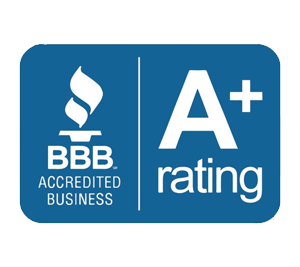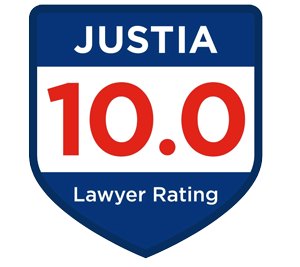
If you have filed a lawsuit in a personal injury case, you will likely have personal injury deposition taken by the defense lawyer. Depositions are taken after initial discovery is completed. The initial discovery consists of the exchange of documents and answers to written questions called interrogatories. A personal injury deposition is a series of questions asked under oath by the other lawyer. Although the defense lawyer represents the defendant, he or she is paid by the insurance company. So, if that defense lawyer wants to keep being hired by the insurance company, he or she must try to poke holes in your case. A deposition is basically the defense lawyer’s chance to vet the case for the insurance company. Following the deposition, the defense lawyer will report back to the insurance adjuster with an analysis of how you did. The goal of every plaintiff is to be able to explain your case to the other lawyer and appear likable and honest.
Since defense lawyers take dozens of depositions of plaintiffs every year, they are well versed and very skilled at probing areas of the case that they can use to their advantage in the future. Keep in mind that the defense lawyer already has reviewed all of your medical records, the crash report and the written answers in advance. Despite their knowledge of the case, every question is potentially a test of your memory and of your ability to articulate the case in front of a jury. It can be an intimidating situation, but as long as you tell the truth, you will do fine.
Since defense lawyers take so many depositions, they basically go off a script. This script varies slightly from lawyer to lawyer, but they all hit on certain main areas; the accident, your treatment, and how the injury affects you.
I have attempted to summarize below many of the common questions that I hear defense lawyers asking at personal injury depositions of my clients in an auto accident or personal injury cases.
Background:
Address. Where you live currently and where you’ve lived for the past 10 or so years. Also who you lived with;
Education:
Employment-where you work or have worked, the rate of pay, and any claims for lost wages. Some lawyers will inquire about what tasks you are asked to perform at work. They will imply that any manual labor jobs you have worked are the cause of your injury, not the accident.
History of athletics, sports or gym memberships. This is done in an attempt to blame your physical activity for the injury or, if you still go to the gym or play sports, to discount how bad you were really hurt.
Prior criminal history-although the only thing that is relevant and admissible in the case are prior convictions for felonies or crimes of dishonesty or false statement (petit theft, retail theft), you still may be asked for every time you were arrested. This can be embarrassing and your answers must be truthful.
Accident:
Had you consumed alcohol or medication before the accident or within the 24 hours prior? Again, the goal of these questions is to blame you and the medication for poor reaction time or balance.
What was the speed limit and how fast were you traveling?
The details of the accident-they will always ask you in a car accident case when the first time you saw the other car. If you say you never saw the other vehicle, they will argue you weren’t paying attention.
You will be asked about the steps you took to avoid the collision. They will ask you to describe how hard the impact was to the vehicle you were in, which direction your body moved after impact, and whether your body impacted any part of the interior of the car. Of course, you will be asked if you were wearing a seatbelt.
Post Accident:
Whether you spoke to the other driver or any other witnesses at the scene? Again, they are looking to see if their client made any admissions of fault. Who called the police or if no call was made, why not?
Medical Treatment:
Did the paramedics come to the scene? Was treatment given or refused?
Did you go to the hospital immediately? If not, why not?
You will be asked specific questions about your injuries. Remember, they have your hospital records and/or the records from the first time you went to see a doctor. They will ask you, body part by body part, about whether you sustained an injury compared to the medical records in an effort to get you to forget or not mention an injury. If you miss an injury, they will argue either you were lying or it wasn’t that serious.
You will be asked what doctors you saw (by name) and who referred you to that doctor. You will also be asked how many times you went to see the doctor and whether you followed their advice.
They will want to know if you have any plans for future treatment, surgery or any appointments set? These questions are set-ups to rule out future medical costs such as injections or surgery. By answering that you have no desire to get any further treatment, the insurance company knows it is not under any pressure to resolve the case quickly and that the damages are capped.
Medical Bills:
They will want to know how the medical bills were paid or, if the bills were secured by a letter of protection (LOP-another word for an IOU), how you intend to pay the bills. Again, the goal of these questions is to imply that you will never pay the bills. So, learn what the effect of a LOP is before the deposition from your lawyer.
Prior Accidents:
They will ask about every prior accident you’ve had. They may already have a record of every claim that has been made on an insurance policy from your past through a database that the insurance companies share. Again, they are seeking to blame prior accidents for your injuries.
Prior Trips to the Hospital:
They want to know every time you’ve sought emergency medical care, even if it is for the flu! These questions about prior accidents can be in depth. If you’ve ridden a dirt bike as a kid, they will ask if you ever crashed or spilled it. If you’ve ridden a horse, they will ask if you’ve ever fallen off it. These questions are all a set-up to try and pass the blame.
Who your primary care doctor is and any other treating doctor for the last several years. Again, the purpose of these questions is to send a request for documents to that doctor in the hopes that the doctor will have noted somewhere that you’ve experienced pain or an injury to the same part of the body that you are claiming was injured in the accident at hand.
How the Accident has Affected You:
You will be asked about what type of pain you are currently experiencing. Some lawyers even ask you to estimate on a scale from 1 to 10 about how bad the pain is as you sit there. What types of activities you can no longer do or that cause you pain to perform? They will ask specific questions about these activities such as whether you can ride in a boat, sit through a movie, do chores, etc. If you have traveled, they will ask about where you went, why, and how long you sat on the plane.
Social Media:
Some lawyers will ask for any of your social media accounts. They will look at these accounts to see any public pictures you have posted or were tagged in. Again, the goal is to show you having a good time or doing activities that contradict your claim.
This list is not exhaustive, but the better prepared you are for your deposition, the better you will do, and the better the report you will get sent back to the insurance adjuster. The hard work that you do to prepare for your deposition always leads to a higher value being placed on your case.
Contact a Personal Injury Attorney
If you or a loved one have been involved in an accident, then you should take the proper measures to ensure you receive the compensation you deserve. Contact St. Petersburg Personal Injury Attorneys McQuaid & Douglas today and speak with an attorney. For over 60 years our firm has been successfully helping people who have been injured due to someone else’s carelessness. We have been nationally ranked for decades by US News and World Reports as a Tier 1 law firm, which is the highest ranking that can be received. Sean McQuaid and Jonathon Douglas have dedicated their careers to continuing the firms legacy of superior legal representation.
Remember that we never charge a fee, unless we win. Call us today at 727-381-2300 so that we may answer your questions, help you navigate the complexities of insurance claims, and recover the compensation that you deserve.
We work hard to make sure each and every client gets the attention that they deserve. We appreciate feedback from our clients and reviews are validation of our work. Every 5 star review that we receive lets us know that our services were appreciated by our clients.
St. Petersburg Personal Injury Attorneys McQuaid & Douglas
5858 Central Ave suite a
St. Petersburg, FL 33707
(727) 381-2300






















